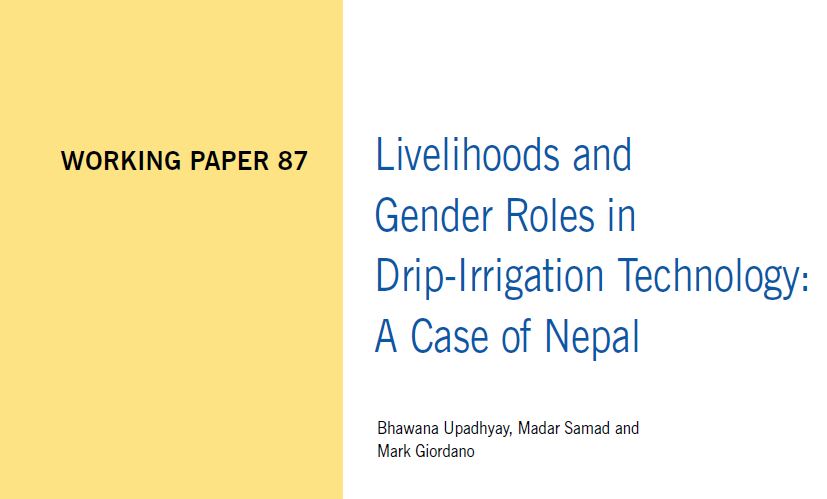Livelihoods and Gender Roles in Drip-Irrigation Technology: A Case of Nepal
This paper attempts to understand gender issues in micro-irrigation technology by exploring the dynamics of gender, water and rural livelihoods. Based on an empirical study in the rural areas of West Nepal undertaken in 2003, the paper assesses the socioeconomic impact of drip-irrigation systems on men and women's lives. A combination of participatory research tools, participant observation and secondary sources were used to generate data. The study revealed that women extensively contributed to vegetable farming under the drip-irrigation systems. The total time (mean hours) spent by women in vegetable production is significantly higher than those spent by their male counterparts. The benefit cost analysis of vegetable farming has shown overall viability in terms of net present value, benefit cost ratio, internal rate of return and payback period. Based on the study findings, the paper suggests that similar technological interventions could be considered in places of similar socioeconomic and biophysical characteristics to help empower rural women. Finally, the paper raises some significant questions in relation to rural livelihoods and women's entitlements.
